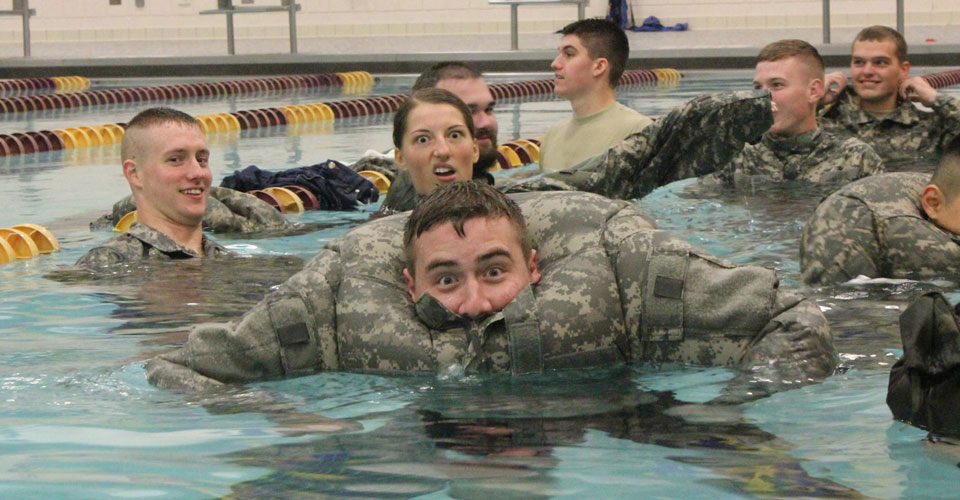

Hey! Hey!
I hope you all had a great and safe Thanksgiving.
Last week, our main training event was CWST (Combat Water Survival Test). What this means is that we all go into the pool and complete a set of tests in the water. The tests included a 15-meter swim with full equipment, a blindfolded 3-meter drop, and the removal of equipment while underwater. Although none of these tests are necessarily difficult, they are meant to test your ability to stay calm in stressful or frightening situations. While half of the battalion was conducting these tests, the other half was on the shallow end where we learned how to make floating devices out of our trousers and tops.
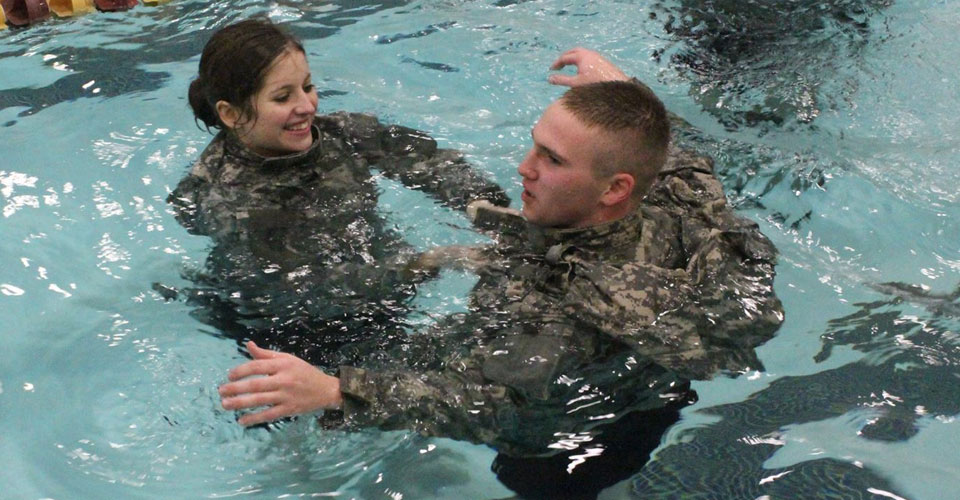
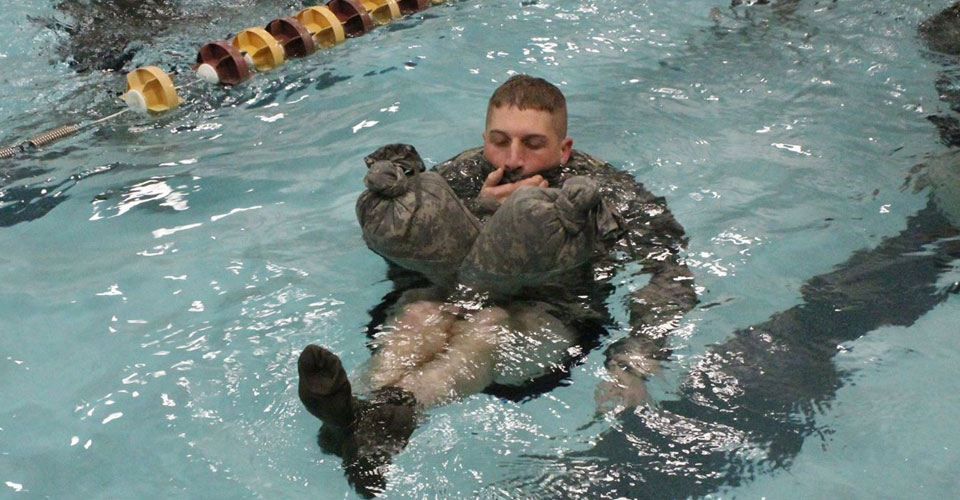
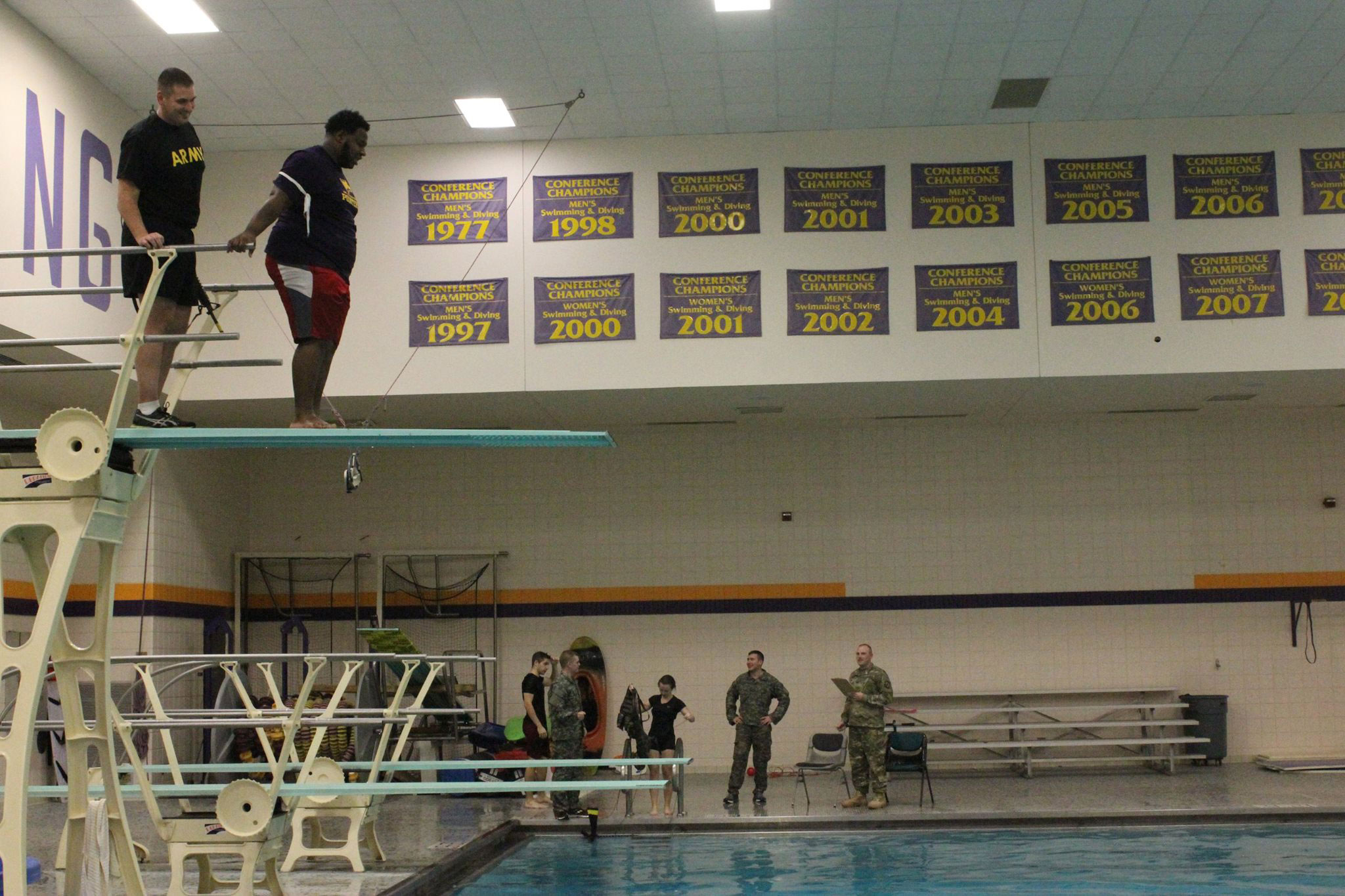
We were joined by some of the public who took part in and rocked all of the tests. Some of the guests conquered their fears of swimming and heights during the high-dive test. It’s always great to see people out there willing to improve their selves with every little (or big) leap of faith.
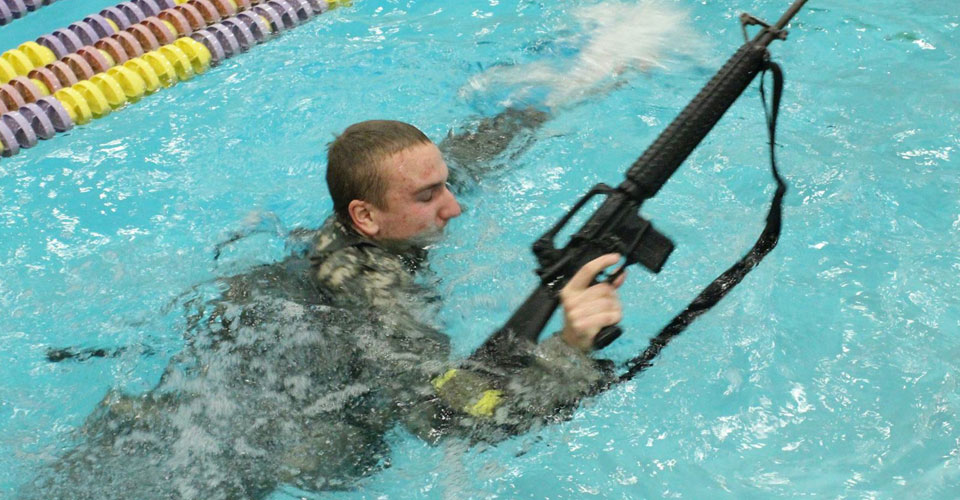
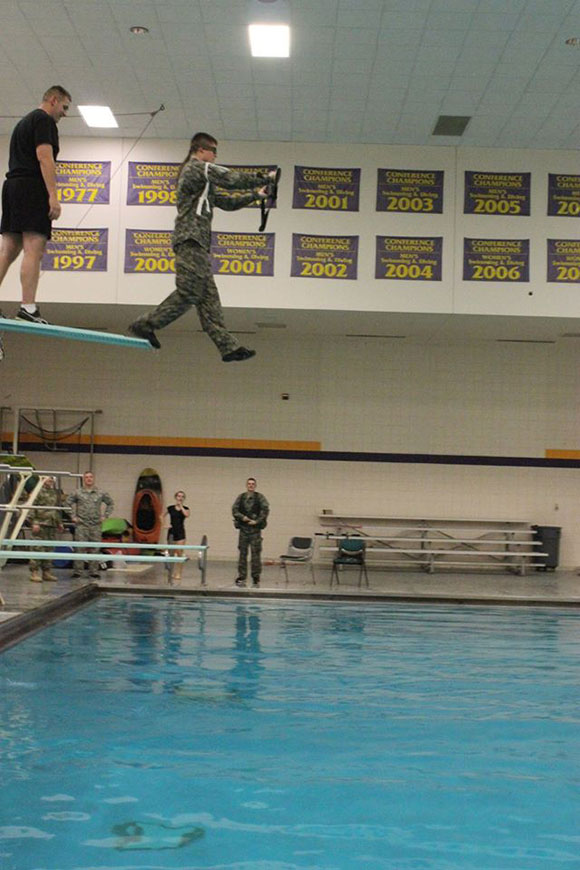
The 15-meter swim can be extremely trying because you have to do your best to keep your weapon above water while you are swimming which allows for only one arm to propel yourself through the water. You have to really focus on your breathing and technique in order to be successful. You’re main goal is to get across without showing signs of panic while keeping yourself and your weapon above the water. This is probably the event where you’re most out of breath afterwards.
The 3-meter drop is scary because you do not know when your last step will be. SFC Smith is the one who guides you down the high-dive. When you are at the edge of the high-dive, you are on your own to take the leap of faith. Three meters may not seem very far, but when you are blindfolded and cannot see when the water is coming up, three meters seems to take forever. Not only are you blindfolded, but you are holding a weapon and must maintain control of the weapon on the way down, when you hit the water, and on the swim back to the edge of the pool. This is the most difficult event not to show panic with. Not being able to see where you are and knowing that you are relatively high up with no control over anything can be terrifying.
The final test is the equipment drop. You are wearing a FLC which stands for Fighting Load Carrier (a type of vest that can hold a multitude of things from canteens to magazines) and a weapon. You must jump into the water and drop your FLC and weapon all while you are completely under water. This is difficult because there is a strategy to staying under water long enough to undo the zipper and get the FLC off before you breach the surface. The trick is to let your breath out as soon as you hit the water in order to make yourself more sinkable.
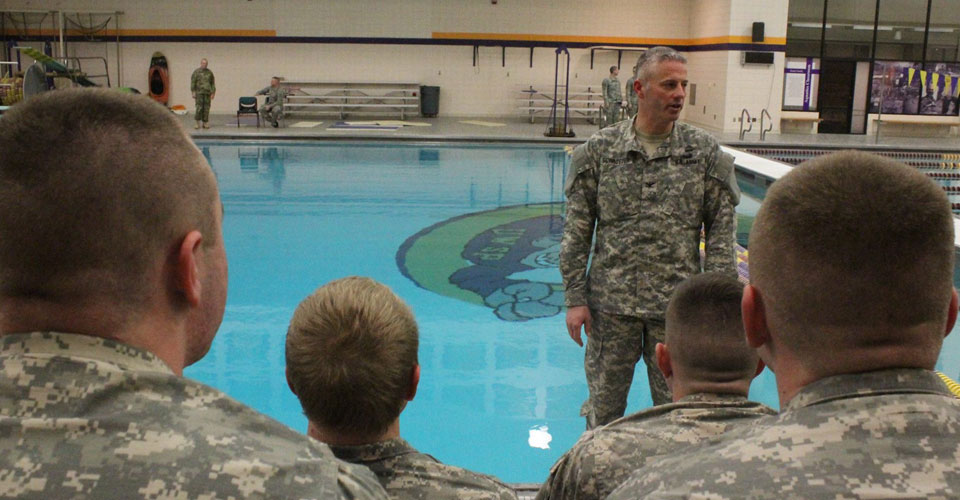
Along with these tests we also had the honor of having Colonel John Schroeder, the Wisconsin Army National Guard Chief of Staff, join us and say a few words on what it takes to be a good leader. He also volunteered to be the demonstrator for the events!
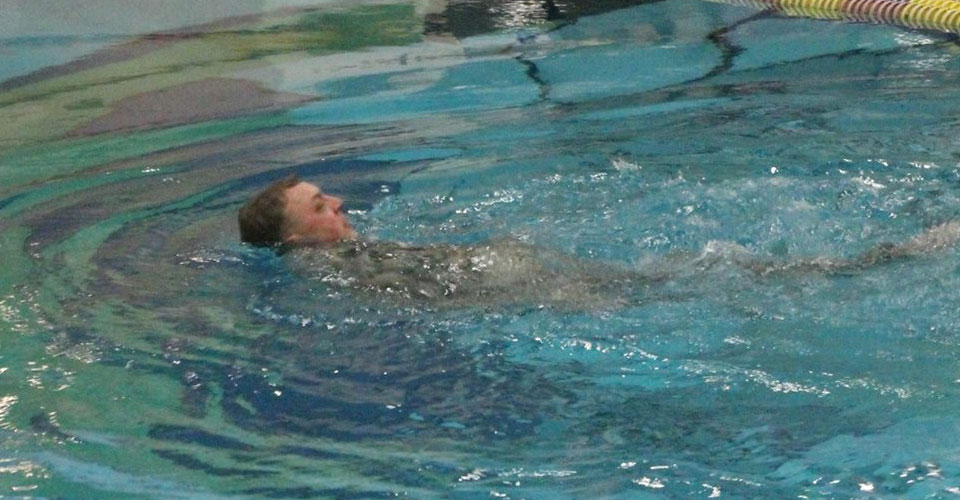
Lieutenant Colonel Thompson, our professor of military science, also decided to take a quick swim after we had all completed and passed the tests as a little morale booster!
Overall, it was a very fun night and something to look forward to every year.
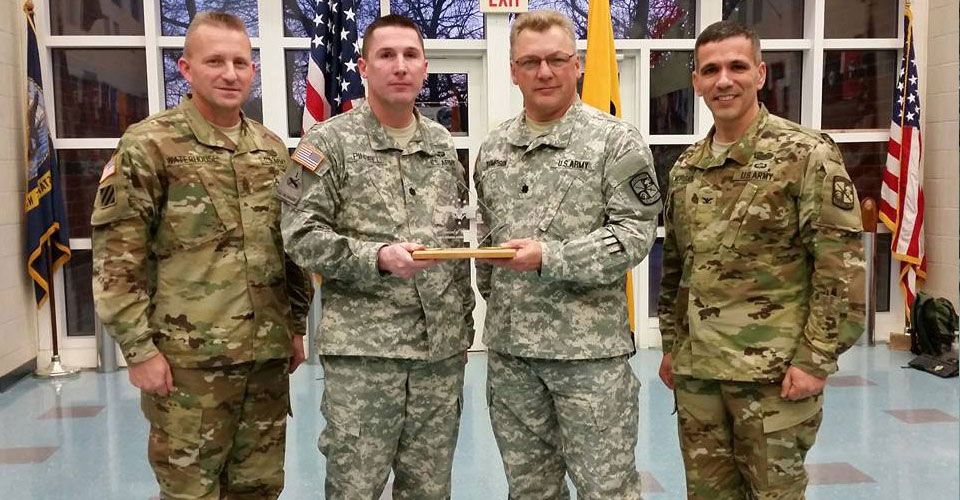
Along with CWST and all of our cadets passing, UW-Stevens Point ROTC had another great accomplishment this past month. Out of 42 ROTC programs ranging from Northern Michigan all the way to Southern Missouri, UWSP ROTC was awarded 2015 Overall Top Program by the 3rd Army ROTC Brigade on Nov. 19. There are four categories that programs are rated on: logistics, administration, recruiting and retention, and operations. While the first three have to do with how the program is actually ran, operations has to do with the actual cadets in the program. The cadets are assessed on their GPA, physical fitness, and leadership skills. This is a great honor for our program and proves that hard work really does pay off.
Until next time! Pointers Lead the Way!
Cadet Newell
Rilee Newell is a cadet in the UW-Stevens Point ROTC program. She is majoring in sociology with an emphasis in deviance and social control with minors in military science and peace studies.
